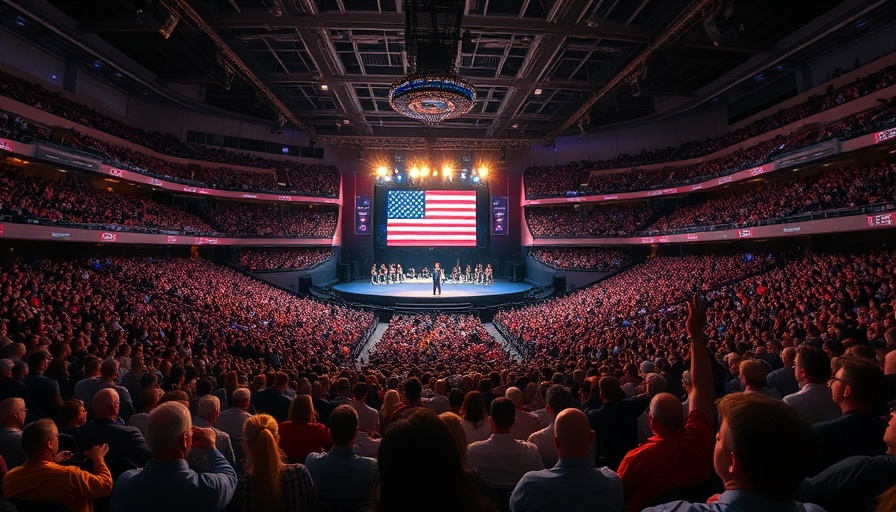
Understanding the Intersection of Faith and Politics
In a striking fusion of faith and politics, Charlie Kirk’s recent five-hour memorial service highlighted a powerful call for unity among believers. The service, attended by numerous prominent figures, served not only as a tribute to Kirk's life but also as a reflection on the integral role of faith in modern political discourse. Families seeking guidance and connection should consider how faith influences personal and communal decision-making, especially in challenging times.
The Role of Community in Shaping Faith
The memorial was rich with messages centered around community values, reinforcing the importance of gathering as a family unit. With speakers emphasizing the strength that comes from togetherness, families were reminded of the biblical call to support one another through both triumphs and tribulations. In moments like these, community-oriented households can find inspiration to engage in deeper connections with those around them, fostering a spirit of mutual upliftment.
Faith as a Foundation for Political Engagement
As we navigate the complexities of contemporary society, understanding how faith influences our political viewpoints becomes crucial. Kirk's memorial not only commemorated his impact but also served as a reminder that our beliefs inherently shape our decisions. Families that prioritize biblically grounded discussions can empower younger generations to approach civic engagement with a heart for service and a commitment to truth.
Embracing Intergenerational Wisdom
The event showcased the beauty of intergenerational fellowship, as older and younger attendees interacted, sharing insights and experiences shaped by their faith journeys. This exchange of wisdom is invaluable, as families can learn from one another and uphold the traditions and teachings that bind them together. Just as Kirk encouraged a new generation of leaders, families are called to nurture the spiritual growth of their children while grounding them in the lessons of the past.
Practical Insights for Nurturing Faith in Families
Creating an environment where faith is discussed regularly can significantly impact children’s understanding of their beliefs. Families can establish rituals such as weekly family Bible studies or prayer nights, creating intentional spaces for spiritual growth. As parents, being open about the political landscape while grounding conversations in biblical principles encourages children to think critically and develop their convictions based on their faith. Being intentional about these discussions helps weave a tapestry of faith that spans generations.
Reflecting on Charlie Kirk's Legacy
Kirk’s lasting influence serves as a prompt for families to consider their role in the grand tapestry of faith and community. By reflecting on his teachings and the messages delivered during the memorial, families can assess how they, too, can engage meaningfully in both their spiritual lives and the broader societal context. Embracing Kirk's legacy means remaining active participants in the church and community, fostering environments that prioritize both godly principles and civic responsibility.
Encouraging Families to Engage
As you contemplate the discussions sparked by Kirk’s legacy and memorial service, consider how your family can actively engage with their faith in practical ways. Plan gatherings with loved ones, attend community events, or participate in local church initiatives to cultivate connections rooted in shared beliefs. Remember, the strength of your family's bond lies in your collective commitment to living out your faith, both at home and in the wider community.
Call to Action: Dive into the heart of your family's faith journey by seeking opportunities to connect with your community. Whether through service, discussions, or attending local events, fostering relationships that celebrate your beliefs can enrich your household and strengthen your bonds.
 Add Row
Add Row  Add
Add 








Write A Comment